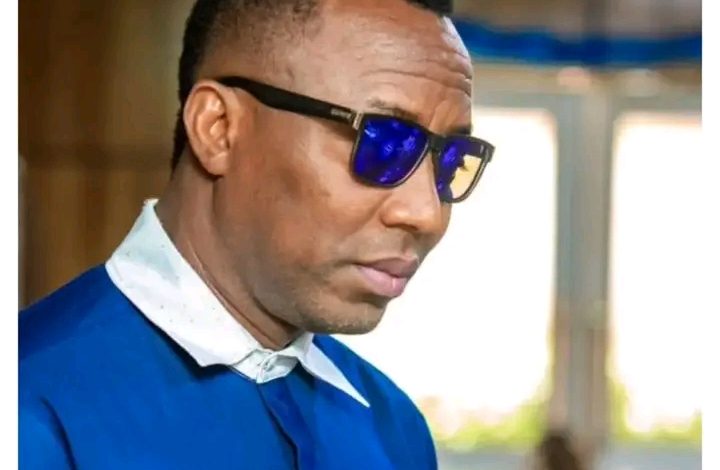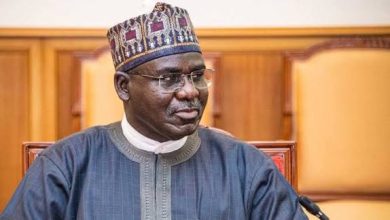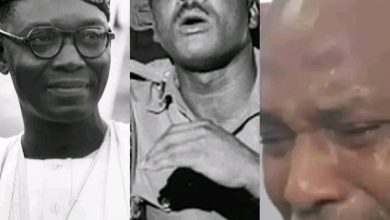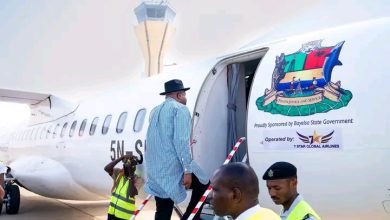Omoyele Sowore Is A Bonafide Apoi Ijaw Son — Not Yoruba: Setting the Record Straight
Despite assumptions fueled by geography and language, the human rights activist hails from the Apoi Ijaw ethnic group in Ese‑Odo, Ondo State.

By PASSMAN AKPOS/Tarakirivoice Editorial Team
In the ever-vibrant Nigerian public discourse, ethnic identity is not just a personal detail — it’s a deeply political and cultural marker. One name that continues to stir debate in this regard is Omoyele Sowore, the renowned human rights activist, publisher of Sahara Reporters, and multiple-time presidential aspirant.
Is Sowore Yoruba? Or Ijaw?
The claim that he is of Yoruba origin has lingered in both casual discussions and formal commentary. However, Tarakirivoice’s closer look into his background reveals a different story — one rooted in the riverine creeks of Ondo State, in a proud and distinct ethnic heritage: the Apoi Ijaw.
This article by the Tarakirivoice Editorial Team, lays out the facts, clarifies the confusion, and respectfully sets the record straight.
Sowore’s Ancestral Home: Kiribo, Ese‑Odo LGA
Omoyele Sowore was born in Kiribo, a town located in Ese‑Odo Local Government Area of Ondo State. This region, part of the state’s oil-rich and riverine belt, is home to two major ethnic groups: the Ilaje (a Yoruba-speaking coastal people) and the Apoi / Arogbo Ijaw, subgroups of the wider Ijaw nation.
While Ondo State is often assumed to be entirely Yoruba, the riverine Ese-Odo and Ilaje areas break that mold. Here, Ijaw communities have lived for centuries — with unique dialects, governance structures, and traditions — some of which have adopted Yoruba as a spoken language due to regional influence.
The Activist’s Own Words: “I’m an Ijaw Man”
Sowore himself has spoken openly about his roots.
In a well-circulated interview with City People Magazine, he stated:
> “I come from a small Yoruba-speaking tribe known as Ijaw-Apoi. My village is Kiribo in Ese-Odo Local Government Area of Ondo State.”
Similarly, in a now-viral video clip, he clarified:
> “I am an Ijaw person — most people don’t know this.”
These are not passing comments. They reflect an intentional assertion of his true ethnic identity, one that many either overlook or misinterpret.
Yoruba Language ≠ Yoruba Ethnicity
A key source of confusion stems from language.
Yes, the Apoi Ijaw people speak Yoruba or Yoruba-influenced dialects, much like many other minority groups across southern Nigeria. But language is not the same as lineage. Many linguistically-assimilated groups retain distinct histories, customs, and identities — and the Apoi Ijaw are no different.
According to historians and ethnographers, the Apoi and Arogbo are part of the Western Ijaw cluster, with settlements stretching from Delta and Bayelsa into parts of Ondo. Despite Yoruba linguistic influence, their identity, migration history, and cultural structure tie them firmly to the Ijaw nation.
Local Knowledge Supports It
Residents of Ese‑Odo are well aware of these distinctions.
Within the LGA, Sowore is known and respected as an Apoi Ijaw son — not as a Yoruba man. Community elders, local historians, and traditional rulers in Kiribo and its environs continue to uphold this lineage in ceremonies, festivals, and oral traditions.
One Nairaland user, clearly familiar with the region, summed it up:
> “Ese-Odo is made up of Ilaje (Yoruba) and Ijaw communities. Sowore belongs to the Apoi people, who are Ijaw, even if they speak Yoruba.”
Why It Matters?
In Nigeria, where identity is often weaponized or oversimplified, it’s important to correct public misconceptions — especially when they diminish or erase the visibility of minority groups.
For the Apoi Ijaw people, Sowore represents not only a prominent voice in national activism but also a source of pride. Mislabeling him as Yoruba — whether innocently or deliberately — contributes to a broader trend of identity erasure that minority communities across Nigeria have long resisted.
This clarification also matters for historical record, media accuracy, and public respect. If we are to honor diversity, then we must also honor self-identification.
Conclusion: A Clarion Call for Accuracy
So, who is Omoyele Sowore?
He is from Kiribo, in Ese‑Odo LGA of Ondo State.He is an outspoken activist, a fearless journalist, and a national political figure.And yes — he is a bonafide son of the Apoi Ijaw nation.
Let the record reflect this truth, and may the Nigerian public continue to celebrate the beauty of its diversity — not reduce it to oversimplified labels.
Written: By Tarakirivoice Editorial Team





